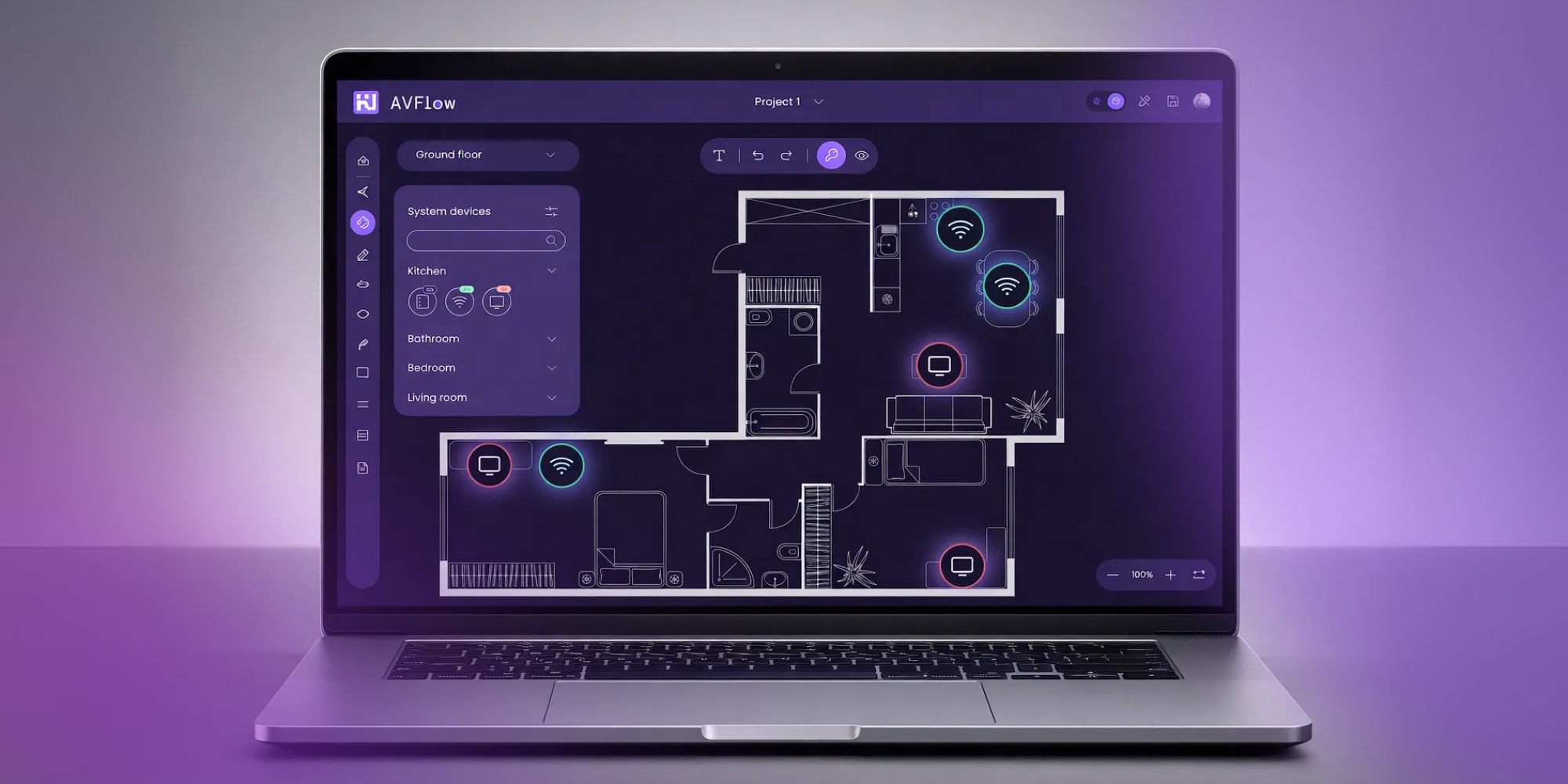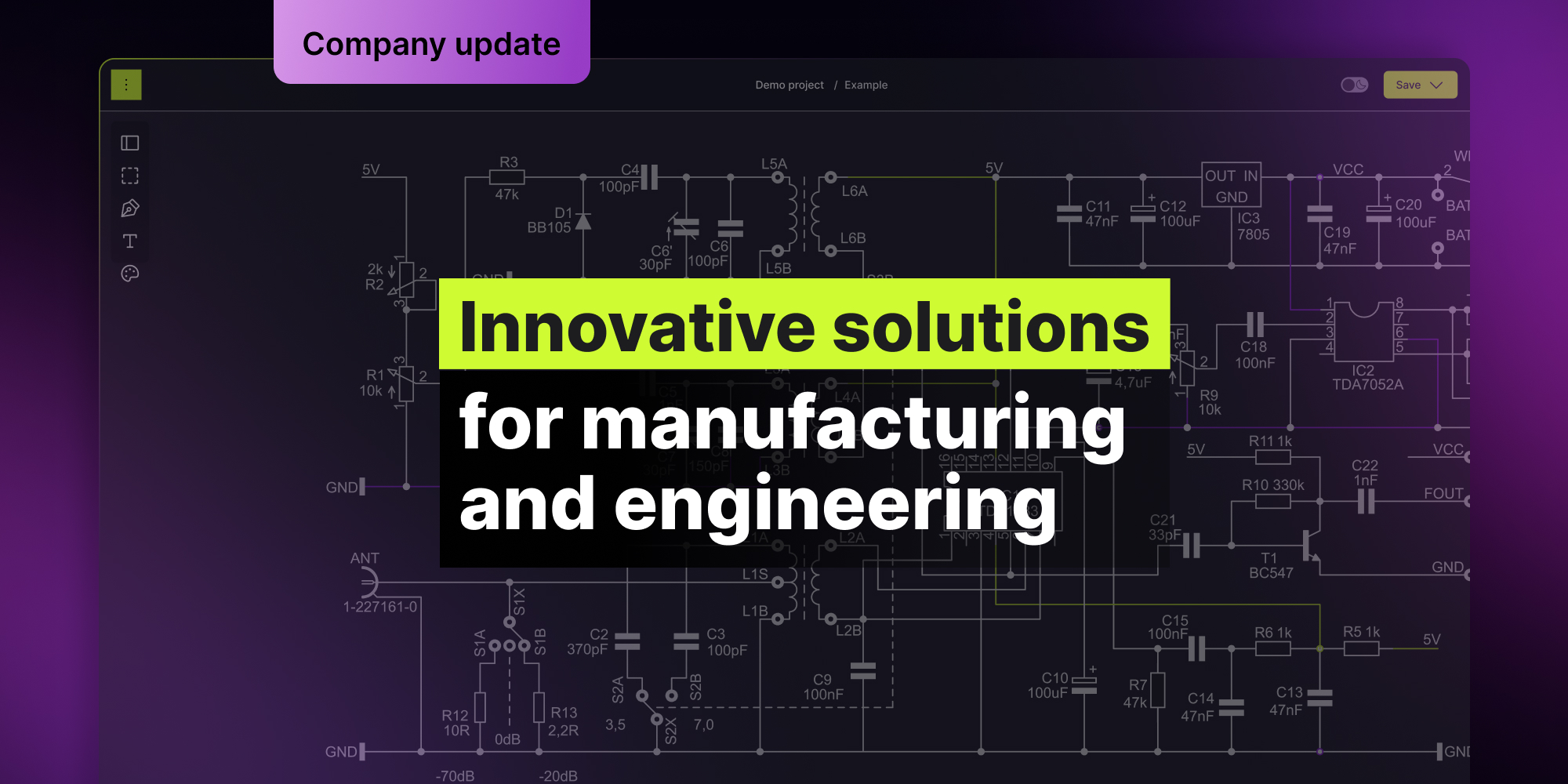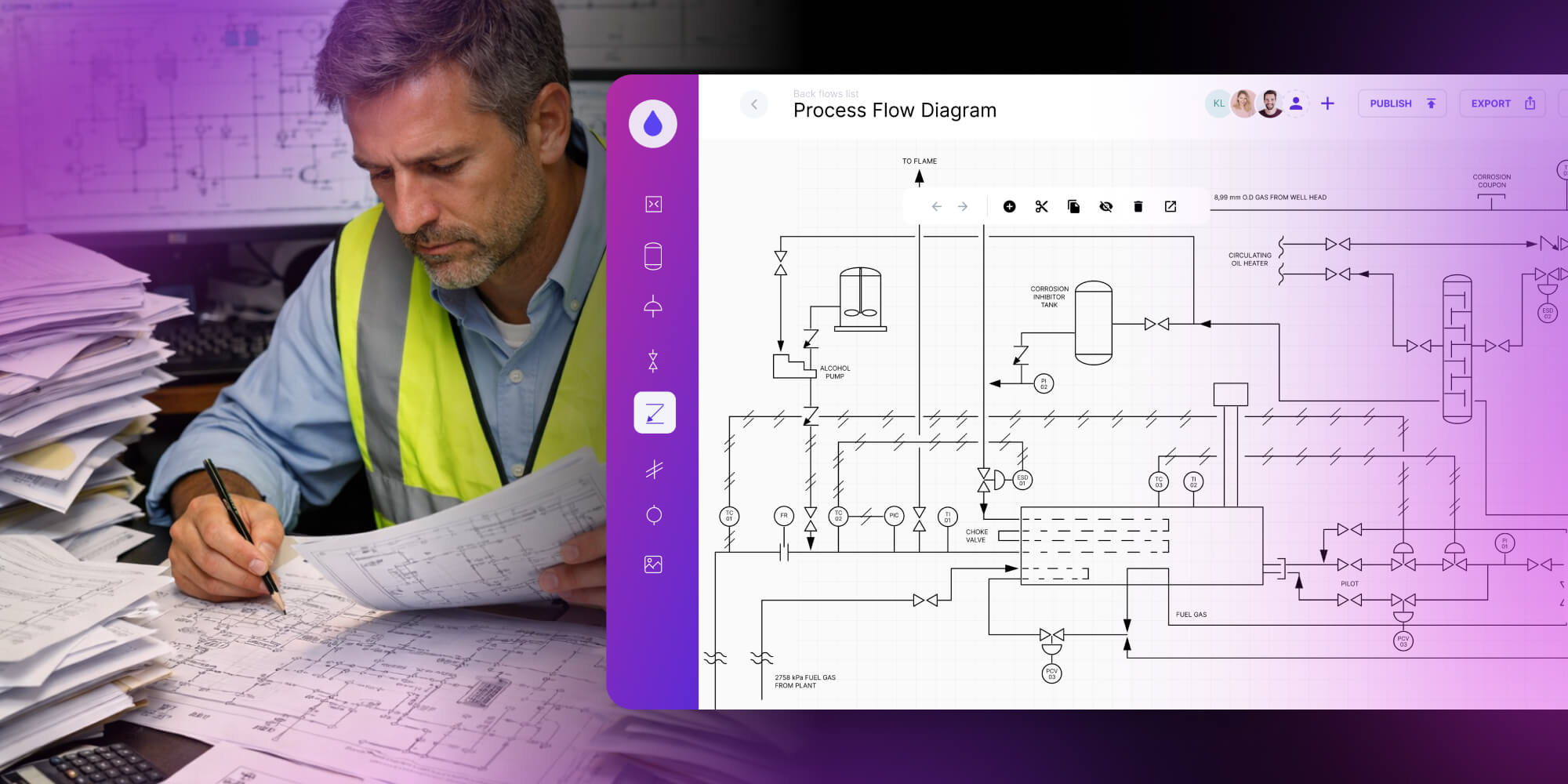AI workflow automation: How intelligent workflows make business processes more profitable?
Discover how AI workflow automation transforms businesses by boosting productivity, cutting costs, and driving innovation. Learn how to stay ahead!
.jpg)
Picture this: your company's operations are running smoothly, productivity is up by 60%, and customer satisfaction has climbed 20%. No, it's not a dream scenario – it's what many businesses are already achieving with AI workflow automation. According to Deloitte's findings, companies using intelligent workflow automation are seeing 4–5x returns on their investments, turning manual, error-prone processes into streamlined, intelligent systems that practically run themselves. AI workflow automation isn't just about saving time. It's about transforming how businesses work.
What is AI workflow automation?
AI workflow automation means using artificial intelligence to automate and optimize complex business processes. But we're not talking about rigid automation like setting up a rule that says, 'If X happens, do Y.' Intelligent workflow automation goes much further – it adapts, learns, and decides.
AI workflows use machine learning and predictive analytics to handle unpredictable inputs, adjust in real time, and uncover insights hidden in your data. With the right AI workflow tools, businesses can automate not just repetitive tasks but entire decision chains, freeing up human talent for more creative, high-value work.
If you'd like to know more, read the "What is workflow automation, and how you can use it" article.
How is intelligent workflow automation different from traditional systems or RPA?
Robotic process automation (RPA) and AI workflow automation are not the same concept. RPA is excellent for simple, rule-based tasks, like moving data from one spreadsheet to another or generating standard invoices. However, when processes become more complex, it is not the best solution.
That's where intelligent workflow automation stands out. Imagine an online store using AI workflows to manage customer orders. If a customer places an urgent order, the system can automatically check stock levels, prioritize warehouse picking, and select the fastest shipping option – without anyone manually stepping in.
Big wins: Why AI workflow automation pays off?
Companies that invest in intelligent workflow automation don't just cut costs. They gain a long-term competitive advantage. Let's break down the concrete business benefits that make AI workflow automation a smart bet for organizations looking to scale, innovate, and stay ahead.
Unlocking productivity and boosting ROI
The conclusions drawn from the already mentioned research are crystal clear: organizations implementing AI workflow automation increase productivity by 20–60% across departments. It's the same with client satisfaction – it could be better by 10–20%. With AI workflow tools, teams automate multi-step processes that previously required constant oversight.
For example, an operations department might automate supplier onboarding, reducing manual touchpoints, cutting approval times, and ensuring compliance. The result is faster execution, fewer errors, and freed-up time.
Breaking silos across business functions
Many think AI workflow automation is just for IT, while, as the Deloitte & ServiceNow report states:
- 28% of initiatives sit in IT,
- 11% focus on operations,
- 10% on marketing,
- 8% on customer service.
That means AI workflows are transforming how entire organizations work.
Imagine marketing departments using AI workflow automation to launch targeted campaigns based on real-time customer behavior, or HR teams applying intelligent workflow automation to manage employee onboarding and training. This cross-functional approach builds a more agile, connected organization.
Speed and scalability with AI-driven automation
Traditional automation tools often fail when businesses need to scale. AI-driven automation, by contrast, thrives under complexity. AI workflow management systems can handle massive volumes of data, identify patterns humans might miss, and adjust processes dynamically.
Take the healthcare sector. Intelligent workflow automation has accelerated R&D cycles by 3–5x, allowing life sciences companies to bring new drugs and treatments to market much faster. That's a transformative change – not just for business, but for society.
Reducing risk and improving compliance
AI workflow automation helps businesses lower risk by giving them full visibility into their processes. It automatically ensures that tasks follow legal requirements and internal policies without needing constant manual checks.
For example, in the financial sector, AI workflow tools monitor transactions in real time to confirm they meet regulatory standards. If something looks suspicious, the system immediately flags it so the company can act before a minor issue turns into a serious violation.
AI workflow management also adds an extra layer of security by connecting with audit trails and automated reporting. This ensures the company always has a clear record of its actions, which is especially valuable during audits or regulatory reviews.
Empowering teams through no-code tools
Thanks to no-code AI workflow tools, non-technical teams can design, test, and launch automated workflows without relying on IT.
Synergy Codes' no-code Workflow Builder is a perfect example. Call center teams can create sophisticated, AI-powered call flows – with drag-and-drop simplicity, speeding up deployment and improving customer outcomes. This kind of workflow automation AI gives business teams the power to innovate on their own terms. Check out our business case, "A no-code workflow builder for complex service flows."
Making inclusivity a business driver
Intelligent workflow automation isn't just about speed – it's also about accessibility. In another Synergy Codes project, a workflow was created to meet strict WCAG 2.1 standards. The platform uses intelligent workflow automation to simplify navigation, ensure context-aware guidance, and make the system intuitive for all users, regardless of ability. If you'd like to learn more, check out our case study "Accessibility-first workflow builder."
The main challenges of implementing intelligent workflow automation
While the rewards of intelligent workflow automation are huge, organizations must approach implementation with wide eyes. AI workflow automation is powerful, but it's not magic – it requires planning, the right tools, and a clear understanding of when to build custom solutions or leverage off-the-shelf platforms.
Managing expectations and defining clear goals
One of the biggest reasons AI workflow automation projects stumble is a lack of clear business goals. Many leaders are excited by the promise of AI workflows but fail to define success.
Teams need to ask simple but crucial questions:
- Which processes should we automate first?
- How will AI workflow tools connect with the systems we already use?
- What specific results are we aiming for?
A good technology partner will guide you through these questions and help tailor the solution to your company's needs, ensuring the automation delivers value.
Ensuring data quality and governance
The success of AI workflow automation depends heavily on the quality of the data it processes. Even the most advanced AI workflow management systems can deliver poor results if fed with incomplete, inconsistent, or fragmented information.
To unlock the full potential of intelligent workflow automation, organizations must prioritize robust data governance practices. This means ensuring that AI workflow tools operate on clean, accurate, and well-structured datasets. A reliable technology partner can play a critical role here, helping companies assess data readiness, establish governance frameworks, and build the data pipelines necessary for effective, scalable automation.
Balancing innovation with practical limitations
While intelligent workflow automation offers impressive capabilities, companies sometimes overestimate how much can or should be automated. For example, a business might try to automate highly creative tasks, only to realize that these areas still require human insight and nuance. The key challenge is knowing where AI-driven automation adds real value and where human expertise remains essential. Clear boundaries and thoughtful planning help ensure automation supports – not replaces – the human strengths that drive innovation.
To dive deeper into pros and cons, check the "Challenges and benefits of workflow automation."
Custom AI workflow solutions vs. off-the-shelf tools
When it comes to implementing AI workflow automation, businesses face an important choice: should they invest in tailored solutions or adopt an off-the-shelf AI workflow tool?
When to choose custom AI workflow solutions?
Custom intelligent workflow automation is ideal when:
- You need automation for a very specific process no standard tool can cover.
- You work with old or custom systems that require deep integration.
- You want a unique AI feature to stand out from competitors.
- You must meet strict industry rules, like in healthcare or finance.
- You have complex approval flows requiring tailored automation.
For example, Synergy Codes built an accessibility-first workflow builder tailored to a client's strict WCAG 2.1 requirements – something no off-the-shelf platform could provide. Here, you can learn more about the project.
When is an off-the-shelf AI workflow tool a better choice?
Off-the-shelf solutions perform best when:
- Your processes follow common, standard workflows.
- You need a fast, affordable way to automate simple tasks.
- You want a quick setup with ready-made templates.
- You need a tool that can scale easily as your needs grow.
- You want to test AI workflows before investing in custom solutions.
Platforms like workflowbuilder.io help companies hit the ground running, offering pre-built intelligent workflow automation modules that can be adapted without writing code.

How do you prepare your organization for AI workflow automation?
AI workflow management isn't just a technical project – it's a strategic shift. Done right, intelligent workflow automation can reshape how an organization operates, unlocking new levels of profitability, agility, and innovation.
To set the stage for success, companies should:
✅ Define a clear automation strategy aligned with business objectives, ensuring AI workflow automation serves real, measurable goals.
✅ Identify a few high-impact use cases that deliver quick wins and demonstrate early value.
✅ Establish cross-functional leadership teams that unite IT, operations, and business stakeholders to ensure broad alignment and shared ownership.
✅ Develop a robust change management plan that prepares employees to adapt to new AI-driven automation workflows, addressing both skills and mindsets.
✅ Select AI workflow tools that balance flexibility, scalability, and strong vendor support, with a clear focus on security, governance, and long-term maintainability.
By approaching intelligent workflow automation as a business-wide initiative, companies can avoid common pitfalls and position themselves to capture meaningful, lasting value.
Make intelligent workflows your competitive edge
The companies winning today are the ones that don't just automate – they automate intelligently. With AI workflow automation, organizations can transform how they operate, serve customers, and compete in fast-moving markets.
Whether you choose a custom-built AI workflow solution or a powerful off-the-shelf platform, the key is to act now. Intelligent workflow automation is no longer a futuristic trend – it's a present-day necessity.
Are you interested in creating an AI workflow automation solution for your company? Send us a message, and let's talk about how we can support you!
Find how we can help you enhance your software and win more deals
Contact us to discuss your project. After you submit the form, we’ll get in touch with you within 48 hours to arrange a call.







